Search
Search Results
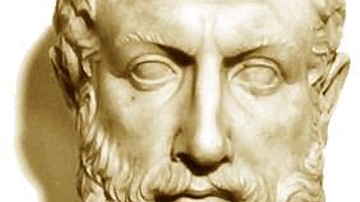
Definition
Parmenides
Parmenides (l.c. 485 BCE) of Elea was a Greek philosopher from the colony of Elea in southern Italy. He is considered among the most important of the Pre-Socratic philosophers who initiated philosophic inquiry in Greece beginning with Thales...
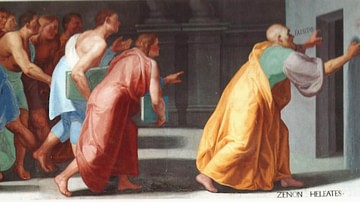
Definition
Zeno of Elea
Zeno of Elea (l. c.465 BCE) was a Greek philosopher of the Eleatic School and a student of the elder philosopher Parmenides (l.c. 485 BCE) whose work influenced the philosophy of Socrates (l. c. 470/469-399 BCE). Zeno and Parmenides are both...

Article
The Art of Dialectic & Zeno of Elea
The creation of the art of dialectic is credited to Zeno of Elea, the philosophical champion of Parmenides’ claim that the essence of reality is One and unchanging. Zeno was Parmenides’ student and protégé and, in defending and defining his...

Definition
Melissus of Samos
Melissus of Samos (l. c. 5th century BCE) was a Greek philosopher of the Eleatic School, considered the third great proponent of that philosophy's claim that reality is One, after Parmenides (l. c. 485 BCE) and Zeno of Elea (l. c. 465 BCE...

Article
Parmenides & the Path of Truth
Parmenides (l. c. 485 BCE) lived and taught in Elea, a Greek colony in southern Italy and is known as the founder of the Monist School (though it may have been founded by Xenophanes of Colophon, l. c. 570-478 BCE) which claimed all of reality...
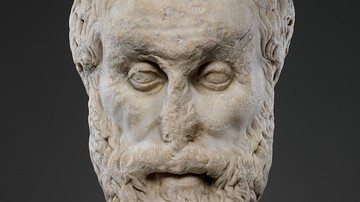
Definition
Pre-Socratic Philosophers
The Pre-Socratic Philosophers are defined as the Greek thinkers who developed independent and original schools of thought from the time of Thales of Miletus (l. c. 585 BCE) to that of Socrates of Athens (470/469-399 BCE). They are known as...
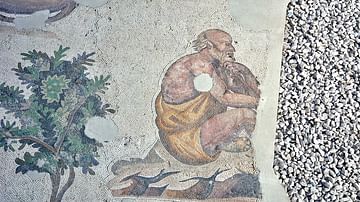
Article
Gorgias' On Nature (On the Non-Existent)
Gorgias of Leontini (l. c. 427 BCE) was a famous Greek Sophist who claimed that nothing exists and, even if it does, its nature cannot be understood and, even if it could be, one is not able to communicate that understanding to another person...

Definition
Heraclitus of Ephesus
Heraclitus of Ephesus (l. c. 500 BCE) was one of the early Pre-Socratic philosophers who, like the others, sought to identify the First Cause for the creation of the world. He rejected earlier theories such as air and water and claimed that...
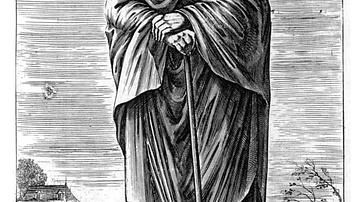
Definition
Xenophanes of Colophon
Xenophanes of Colophon (l. c. 570 to c. 478 BCE) was a Greek philosopher born 50 miles north of Miletus, a city famed for the birth of philosophy and home to the first Western philosopher, Thales of Miletus (l. c. 585 BCE). He is considered...

Definition
Democritus
Democritus (l. c. 460 - c. 370 BCE) was a Greek philosopher and younger contemporary of Socrates, born in Abdera (though other sources cite Miletus) who, with his teacher Leucippus (l. 5th century BCE), was the first to propose an atomic...